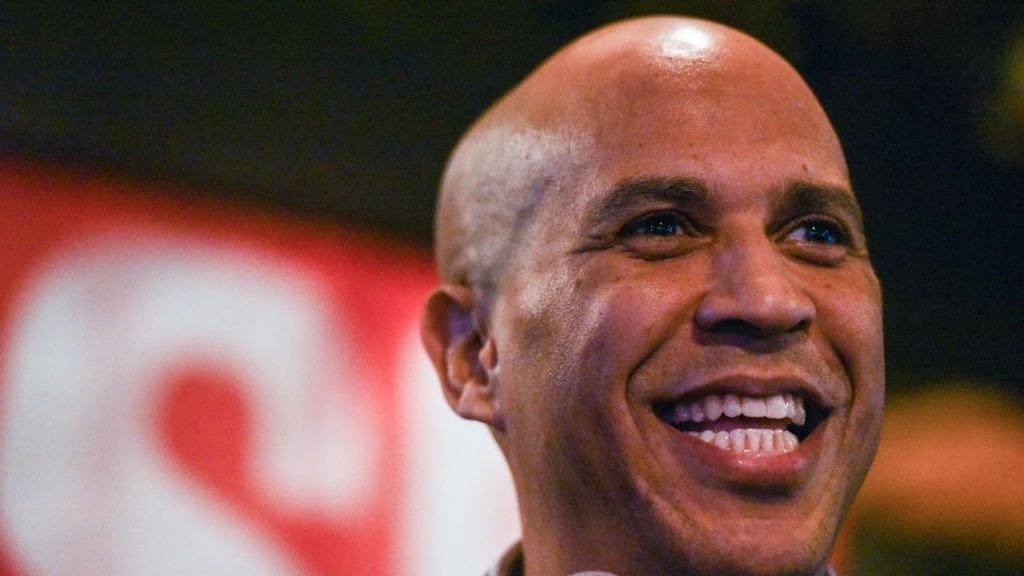Senator Cory Booker has announced a new bill that will ban discrimination based on hair texture and hairstyles associated with a particular race or national origin, reports Good Morning America.
The CROWN Act (Create a Respectful and Open Workplace for Natural hair) was spearheaded by California State Senator Holly J. Mitchell. The bill passed in California back in July, as Blavity previously reported, and New York shortly followed suit.
CA Senate today approved 37-0 my bill to end discrimination against Black workers and students who choose to wear their natural CROWN. #thecrownact
#crowncoalition
#SB188
https://t.co/Lu4aladdI7— Senator Holly J. Mitchell (@SenHJMitchell) April 22, 2019
Booker introduced the bill, which would essentially serve as a national extension of the act, on Thursday.
“Discrimination against Black hair is discrimination against Black people,” Booker said. “Implicit and explicit biases against natural hair are deeply ingrained in workplace norms and society at large. This is a violation of our civil rights, and it happens every day across the country.”
Although federal law prohibits hair discrimination, the democratic presidential contender believes some federal courts have “narrowly construed” rules to allow schools and workplaces to discriminate against Black people “who wear certain styles,” reports Roll Call.
The legislation would make “clear that discrimination based on natural and protective hairstyles associated with people of African descent, including hair that is tightly coiled or tightly curled, locs, cornrows, twists, braids, Bantu knots and Afros is a prohibited form of racial or national origin discrimination,” Booker said.
Booker cited a 2018 case in which a New Jersey high school student, Andrew Johnson, was forced to cut his dreadlocks before a wrestling match.
The CROWN Act is also being praised by Assemblywoman Angela McKnight, who is sponsoring New Jersey Bill A-5564, which amends the state’s law against discrimination to include “race” as inclusive of hair texture and protective styles.
“As a New Jersey legislator and as a Black woman who wears her hair natural, I’m proud to be a part of this movement to protect Americans from systemic discrimination based on racial traits such as hairstyles; and I welcome Senator Booker to the cause,” she said. “I applaud Senator Booker for amplifying our charge in New Jersey to advocate for those nationally who have been forced to change their hair in order to appeal to Euro-centric standards as a condition to pursue economic advancement.”
Representative Cedric Richmond, along with Ayana Pressley, Marcia Fudge and Barbara Lee, composed a companion legislation for the House of Representatives, to go along with CROWN.
African Americans have historically faced racial biases due to negative stereotypes of Black hair. Today, I joined with @RepRichmond, @RepPressley, @RepBarbaraLee, & @SenBooker in introducing the #CROWNAct to ban hair discrimination in schools and workplaces. pic.twitter.com/tM4z8RsEaR
— Rep. Marcia L. Fudge (@RepMarciaFudge) December 5, 2019
“For far too long, Black Americans have faced senseless forms of discrimination merely because of how they choose to wear their hair. As states begin to tackle this issue, it is long overdue for Congress to act,” Richmond said in a statement. “Together, with this bill, we can ensure this form of discrimination no longer goes unchecked.”
Mitchell created the bill in conjunction with political strategist Adjoa Asamoah who imparted to Blavity the imperativeness of the CROWN Act in June.
“The way our hair grows out of our heads should not be seen as a violation,” Asamoah said, in part. “We have a long history and problematic practice of discrimination in this country, and we have to face it head-on. The policing of our bodies is not something that’s new and Eurocentric beauty standards aren’t either. But they do require our attention.”
She also relayed the significance of Black men rallying behind the act as well.
“It’s important that Black men support this work,” Asamoah added. “While anti-hair discrimination pertains to Black men as well, Black women are disproportionately impacted, and we are their daughters, wives and mothers. Black men and women are linked. What impacts them, impacts us, and what impacts us, impacts them.”
In a study done by Dove, which is part of the group urging the law change, it was found that Black women’s hair is three times more likely to be deemed unprofessional. They also found that 80% of Black women “feel the need to change their hair from its natural state to fit in at the office.”
#TheCROWNAct is going national! Thank you @RepRichmond, @SenBooker and other members of the #CongressionalBlackCaucus for introducing federal legislation to end #hairdiscrimination. We stand with you to ensure #realbeauty is celebrated everywhere. Join us https://t.co/dqJ55XrjmL
pic.twitter.com/5ZaVQO7xb5— Dove (@Dove) December 5, 2019
Recently, hair discrimination has become a more prominent conversation when it was revealed Gabrielle Union Wade was fired from her America’s Got Talent judging gig in part because her hairstyles were “too black.”

